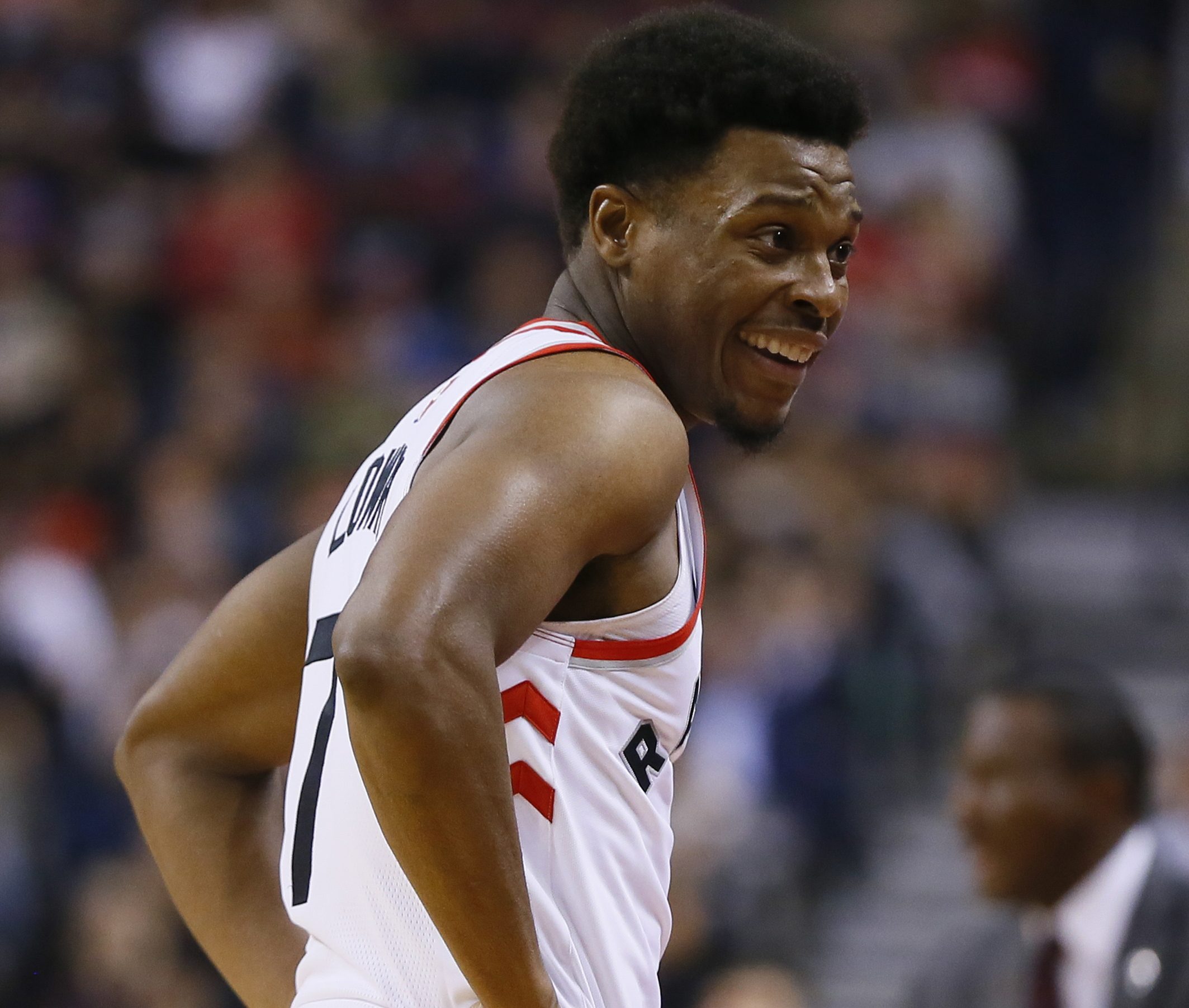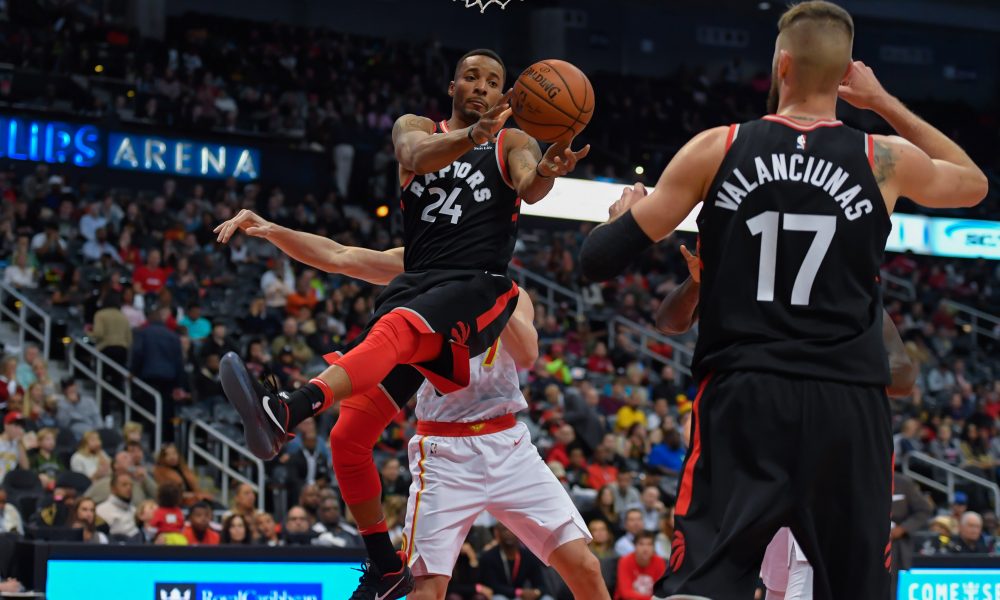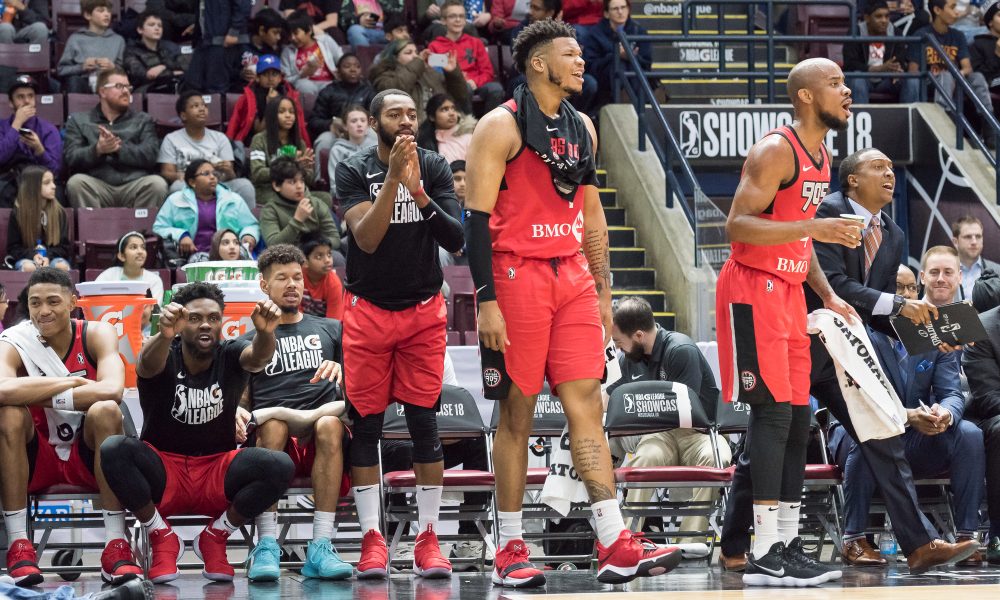It’s incredible how far Kyle Lowry has come.
For the first half-decade or so of his NBA journey, Lowry struggled to find his footing in the league.
After the Grizzlies selected Lowry with the 24th pick in the 2006 draft, they followed suit by selecting another point guard in Conley the very next season. Given Conley’s immediate hype and talent advantage as a fourth-overall draft selection, Lowry was thrown into a battle for minutes with the up-and-coming Florida standout. It didn’t take long for us to find out who Memphis decided on as its point guard of the future. Spoiler: It wasn’t Lowry.
With Conley firmly in place as the team’s number one option, Lowry packed up and left for the greener pastures of Houston.
Rockets general manager Daryl Morey had previously tried to acquire Lowry on draft night in 2006 but ultimately came up short. He wouldn’t miss out on his next opportunity to land the point guard, though, and traded his starting point guard at the time in Rafer Alston to make sure of it. Upon acquiring Lowry in a three-team deal, Morey was quoted saying, “We feel like we got better today … Kyle is going to be a guy the town really loves.”
In hindsight, we know how the Rockets portion of Lowry’s career ended up. The point guard’s bulldog personality often caused issues off the court, as a young Lowry had a challenging time containing his fiery emotions the way he’s much better at doing nowadays. After he thought battling for minutes was behind him following his departure from Houston, Lowry was unpleasantly surprised when Aaron Brooks took over as a starter upon his arrival. Eventually, Lowry would earn the starting job in Houston, but not after a rift between player and organization (particularly his coach) was already in motion. Lowry’s feuding with head coach Kevin McHale triggered his second departure from a team in his first seven seasons.
After tumultuous stints in Memphis and Houston, Lowry finally landed in Toronto.
Lowry started 52 of a possible 68 games in 2012-13, his first season in Toronto and quickly solidified himself as the team’s number one option at point guard. Much to his relief, Lowry no longer had to fight for point guard minutes with the same ferocity he did while with his previous two NBA teams.
The very next season, the Lowry we’ve come to know and love was born. The point guard’s production spiked in his second season with the Raptors, from 11.6 points per game in 2012-13, to an impressive 17.9 in 2013-14. Lowry wound up playing seven more minutes per game that season, which showed the amount of trust his new head coach Dwane Casey already had in him. Rifts between player and coach became an issue of the past; Lowry was starting to turn over a new leaf. And that was just the beginning of his ascension.
Over the next three seasons, Lowry blossomed into an all-star alongside backcourt mate DeMar DeRozan and helped solidify the Raptors as a consistent team capable of reaching 50 wins annually. Lowry and DeRozan also became good friends off the court, which surely helped their production alongside one another on the hardwood. Toronto looked poised to remain in the upper-echelon of the league, so long as its all-star backcourt duo of Lowry and DeRozan was leading the charge.
Even with regular season success, postseason failures over Lowry’s tenure led the Raptors to reinvent themselves on the court and off it as part of their “culture reset”. The ISO-heavy offence and lack of ball movement from seasons past were traded in for 3-point attempts and moving the ball with a purpose in 2017-18.
Becoming more team-oriented initially hindered Lowry’s production, as the floor general struggled at first to acclimatize himself to his new role in the offence. Now, at the halfway point of the season, Lowry has proven he’s still capable of thriving even with fewer touches than in seasons past. For his efforts, he was rewarded with a fourth straight all-star nod.
You can bet the Lowry of old from his days in Memphis and Houston would have really struggled to buy into a new offensive approach the way he has with the Raptors. He would have likely griped about his decrease in touches or had trouble trusting his teammates. Instead, a now-wiser, more mature Lowry embraced the challenge that partially reinventing his game presented.
It’s safe to say his partial reinvention paid off. Congratulations, four-time all-star Kyle Lowry.



